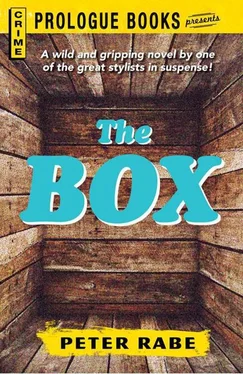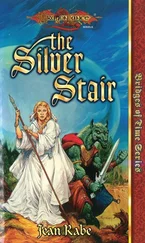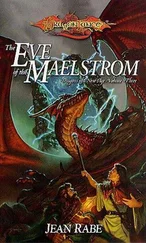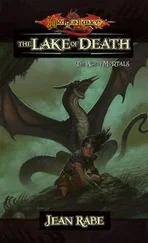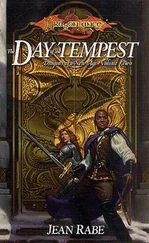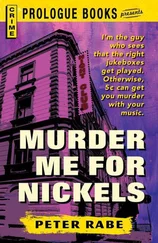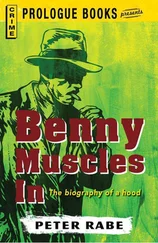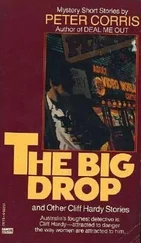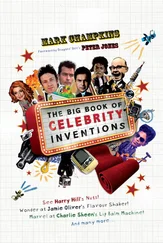Peter Rabe - The Box
Здесь есть возможность читать онлайн «Peter Rabe - The Box» весь текст электронной книги совершенно бесплатно (целиком полную версию без сокращений). В некоторых случаях можно слушать аудио, скачать через торрент в формате fb2 и присутствует краткое содержание. Жанр: Криминальный детектив, на английском языке. Описание произведения, (предисловие) а так же отзывы посетителей доступны на портале библиотеки ЛибКат.
- Название:The Box
- Автор:
- Жанр:
- Год:неизвестен
- ISBN:нет данных
- Рейтинг книги:5 / 5. Голосов: 1
-
Избранное:Добавить в избранное
- Отзывы:
-
Ваша оценка:
- 100
- 1
- 2
- 3
- 4
- 5
The Box: краткое содержание, описание и аннотация
Предлагаем к чтению аннотацию, описание, краткое содержание или предисловие (зависит от того, что написал сам автор книги «The Box»). Если вы не нашли необходимую информацию о книге — напишите в комментариях, мы постараемся отыскать её.
The Box — читать онлайн бесплатно полную книгу (весь текст) целиком
Ниже представлен текст книги, разбитый по страницам. Система сохранения места последней прочитанной страницы, позволяет с удобством читать онлайн бесплатно книгу «The Box», без необходимости каждый раз заново искать на чём Вы остановились. Поставьте закладку, и сможете в любой момент перейти на страницу, на которой закончили чтение.
Интервал:
Закладка:
“Did I talk in my sleep?” he asked.
“Yes.”
“And?”
“We understood very little, except perhaps the word racket. We understood that.”
“I told you I’m a lawyer.”
They had just smiled and then one of them had said, “We’ve asked around, of course, and have learned about this box method. It even has a name, doesn’t it, among criminals?”
Quinn had not answered, and not all the vagueness on his face had been faked. Only the simplest things did not make him feel vague.
“You must get papers, and then you must get out.”
“Yes. And I need clothes.”
They were pleased he was tractable, and then they had left.
Now Quinn looked up from his hands at Whitfield, who was the first stranger since the police had been there. I think he smells of gin, Quinn thought.
“Feel up to a little trip?” asked Whitfield.
Quinn thought for a moment and then he said, “I don’t have any papers.”
True enough, thought Whitfield, and for that matter you don’t have any pants either, and so forth. And not much brains left, is my feeling, and I must say a sad shock you are to me and my cinema knowledge of an American gangster.
“You don’t have any papers,” he said, “which is why I am here. Ah, the clothes.”
The nurse Marie brought a suit, shirt, and the other things and put them on the bed. She smiled at Quinn and held it a while, wishing that he would smile back. She has a sweet girlish face, thought Quinn, and a lot of old-fashioned hair. How does her little cap stay on? But he did not smile back at her.
“These are not the clothes in which you came,” she said. “These are not cut like your own, but I hope you won’t mind.”
“I don’t mind.”
He was easier to look at when he was asleep, thought Marie, and when she left the room she wished he might stay a while longer and sleep here again.
Quinn got out of bed, took his nightshirt off, and started to dress. Whitfield said nothing. He is definitely not an official, thought Quinn, and he looks a little bit dreamy.
“Did you want something from me?” Quinn asked suddenly.
“Uh-want? Oh, no. Quite the opposite,” and Whitfield giggled.
Quinn buttoned his pants which took him some time. He was used to a zipper.
“And you’ll get me papers?”
“Well, it’s like this. I’m going to drive you to the American consul so that you can start getting your papers. We’ll drive to Tripoli.”
“Why Tripoli?”
“Because Okar is too small for a consul.”
“And you are with the consulate?”
At last, thought Whitfield. I myself would have asked that question first.
“No,” he said. “It’s like this. I run the pier-I’m with the company at whose pier-how to put this? — where you were unloaded.” Whitfield smiled again, but Quinn was looking down. “This circumstance,” said Whitfield who suddenly felt he could not stop talking, “this event, you see, gives me a sort of proprietary feeling about you, don’t you know? I mean, if you’ll picture the circumstance, you being delivered to me.” Whitfield had to giggle again.
I have rarely felt so uncomfortable in my life, thought Whitfield with distraction, natural of course, with a man who has no sense of humor. Apt to happen, of course, when boxed. I will cultivate a note of compassion. But then this thought was startled right out of Whitfield when Quinn said the next thing. Quinn did not look up from buttoning his shirt when he talked and perhaps this helped startle Whitfield. For the first time it struck Whitfield that Quinn was talking to him without looking him straight in the face.
“Something stinks here,” said Quinn.
“Uh-I beg your pardon?”
Quinn reached under the bed for his shoes, and when he straightened up again he sighed. Then he put his shoes on.
“Look,” he said. “You run this boatyard, you are not a cop, you take me traveling from one town to another, and all this traveling with me having no papers. That stinks.” Quinn straightened up and looked past Whitfield at the window. “I don’t care,” he said, “but I’m not stupid.”
That you aren’t, that you aren’t, thought Whitfield, but how confusing. How can anyone with eyes open like that have a cunning brain? How confusing. And yet how uncunning to be so confusing. At which point Whitfield gave up, feeling that the thread of his thoughts was escaping him. He shrugged, because he, like Quinn, did not care too much either. What he explained next therefore turned out to be the truth.
“The mayor,” he said, “is anxious to clear all this up. Let me say, he wants to expedite all this, so that you can get out. You do want to leave, don’t you?”
“Oh yes,” said Quinn, because everything that had been said to him since waking up had been about leaving.
“Now, the mayor, being also chief constable and a friend of mine, has asked me to take you, being his charge, on police business to Tripoli. And then I bring you back. Simple?”
“It sounds very simple,” said Quinn.
But you don’t sound simple, oh no you don’t, thought Whitfield. He said, “Button up and off we go.”
“I did already.”
“You missed one.”
Quinn buttoned up and then stood there, looking at Whitfield. He did that like a child, thought Whitfield. What to think of him? Whitfield smiled at Quinn but then looked away, so as not to see in case Quinn did not smile back.
“You know, Quinn-uh, how to put this?”
“How to put what?”
“Of course. That’s the problem. What I mean, coming out of this thing-”
“Box?”
“Yes, that’ll do it. Coming out, it’s sort of like starting at the bottom. New chance and all that. You know, all new, everything. I mean, you look like that sometimes.”
“Do I?” and Quinn did not know what else to say.
The two men walked out and Quinn remembered that Ryder had said it would make a new man out of him.
Chapter 5
The narrow main street looked pink and blue to Quinn, pink on the side where the sun hit and blue on the shadow side. There were not many people. There was an old woman who scraped camel dung into a basket. When Quinn passed he saw that the woman was a man. Three children looked at Quinn, because he was so pale, but one child looked with one eye only, because the other was covered with flies. And a man stared down from a balcony, watching the stranger walk. The balcony was birdcage thin and a little water dribbled down to the street. The man was holding a wet rag to the back of his head, and when Quinn passed the man closed his eyes again.
“Peaceful town, eh?” said Whitfield.
“I don’t know. Just lying still doesn’t mean peaceful.”
Whitfield looked at Quinn for a moment but said nothing. Before driving out of here I’ll have a gin fizz. With ice this time.
“We turn in here,” he said.
Quinn saw the little trees on either side of the steps, and the big stone facade.
“The bank?”
“It’s the hotel. Between ten and two our mayor is at the hotel.”
“He owns the hotel, too?”
“Oh no. Owned by a Swiss couple. They always own hotels, you know.”
“I didn’t know.”
I must stop making these little remarks, thought Whitfield.
There was a yellow dog on the bottom step, belly turned sunward. This was a thin, yellow dog, Quinn could see, and only his bare belly looked meaty. Quinn did not feel right about the dog.
“Thin enough to survive,” said Whitfield.
“What?”
“They eat them, you know. When they’re fat. You like dogs?”
“I’ve never eaten one.”
Now I surely must stop, Whitfield thought.
They went from the dry heat into a hall which was tiled and cool, thin brass columns going up and up, past the second-floor balcony which ringed the hall. They turned through an arch into a large room which seemed filled with nothing but little round tables. Then Quinn saw a big Arab get up in the dark corner. Somebody else sat there at the table with him.
Читать дальшеИнтервал:
Закладка:
Похожие книги на «The Box»
Представляем Вашему вниманию похожие книги на «The Box» списком для выбора. Мы отобрали схожую по названию и смыслу литературу в надежде предоставить читателям больше вариантов отыскать новые, интересные, ещё непрочитанные произведения.
Обсуждение, отзывы о книге «The Box» и просто собственные мнения читателей. Оставьте ваши комментарии, напишите, что Вы думаете о произведении, его смысле или главных героях. Укажите что конкретно понравилось, а что нет, и почему Вы так считаете.
